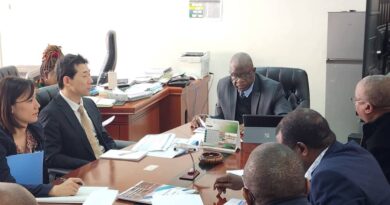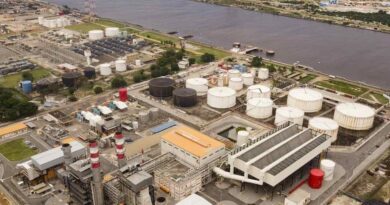The Dangers of Reflective International Oil Prices on the Local Oil Pump Price in Zambia
The global oil market, a labyrinth of intricate factors, has a profound impact on countries heavily reliant on oil imports. Zambia, like many nations, faces the perils of reflective international oil prices, a phenomenon that ripples through the local market, triggering significant economic consequences. Engineer Bornface Zulu delves into the intricacies of this issue and explores potential solutions to mitigate its adverse effects.
At the heart of the matter lies the unpredictable nature of global oil prices and their direct influence on the local market. Zambia’s dependence on oil imports for its industries, transport, and energy sectors renders it susceptible to the whims of the volatile international oil market. Factors such as world demand, supply and production, natural disasters, political instability, and recent events like the Covid-19 pandemic all contribute to the unpredictability of global oil prices. Consequently, these fluctuations swiftly translate into price hikes or declines in the local market, making it a challenging environment for individuals and businesses to plan their economic activities.
Another critical concern stems from the frequent monthly oil reviews, which introduce instability into the local economy. These reviews lead to price fluctuations in the local oil market, disrupting sectors like transport and agriculture. Such volatility can result in increased costs for essential commodities like mealie meal, which burdens low-income consumers and strains businesses reliant on oil, potentially leading to job losses.
To counter these challenges, Zambia must reduce its reliance on international oil prices and the US dollar. Building substantial oil reserves is one viable strategy to stabilize local oil prices and provide a buffer against global economic trends, particularly during times of crisis.
Furthermore, the Zambian government should consider diversifying the currencies used to purchase petroleum products. Relying solely on the US dollar exposes the nation to the currency’s fluctuations in the global market, which can reverberate through local pricing. By exploring alternative currencies like the euro, Chinese yuan, or Japanese yen, Zambia can reduce its vulnerability to dollar volatility.
Lastly, Zambia should prioritize investment in electric mobility and fortify its economy to combat climate change. Embracing electric mobility can reduce the nation’s dependence on petroleum products and foster new industries that generate employment and stimulate economic growth. A resilient economy would better shield Zambia from the negative impacts of changing global economic environments, safeguarding the well-being of its citizens.
In summary, the dangers posed by reflective international oil prices demand a proactive response from Zambia. Building oil reserves, diversifying oil-purchasing currencies, transitioning toward sustainable electric mobility, and strengthening the economy are essential steps the government can take to enhance resilience and protect its citizens from economic volatility. These measures promote sustainability, foster economic growth and development, and provide a stable platform for the nation’s future.



